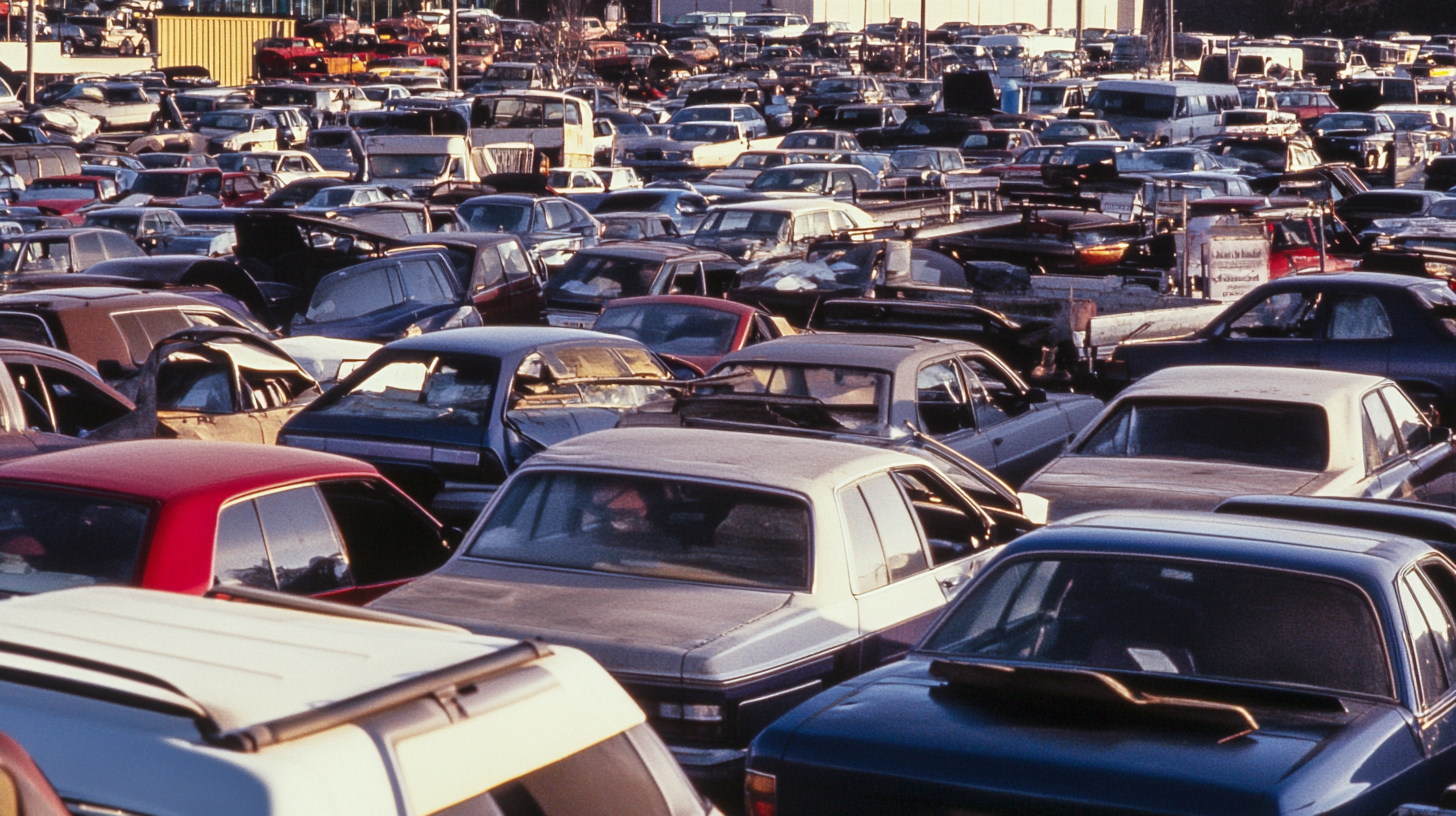Used car prices are at an all-time high, leaving many buyers wondering what’s causing the surge. If you’ve been car shopping recently, you’ve probably noticed the sticker shock. I know I did! But what’s actually driving these outrageous prices? From supply chain delays to an increased demand for vehicles, let’s dive into the factors behind this trend and what it means for the future of used car buying.

Table of Contents
The Current State of Used Car Prices
If you’ve recently shopped for a used car, you’ve probably experienced the shock firsthand. Used car prices have jumped significantly over the last few years, and it’s catching many buyers off guard. This spike isn’t just a quick trend either. Data from the Bureau of Labor Statistics reveals that used car prices rose by over 40% in the last two years, and there are many reasons behind it.
The numbers vary based on factors like vehicle type, age, mileage, and condition, but generally speaking, buyers are now paying a lot more for the same models they could have bought for less not too long ago. This section looks at the unique factors driving these prices up, from production delays to supply chain issues, so you get a clear picture of the market as it stands.
Key Data Points:
- Price Surge: The average price of used cars rose by about 20% in the past year, with high-demand models like SUVs and trucks seeing even higher jumps.
- High Demand: Due to supply issues in the new car market, many buyers have turned to used cars, driving prices up further.
- Decreased Inventory: Fewer new cars mean fewer trade-ins, resulting in lower availability of used cars.
Supply Chain Issues and Their Impact on Car Prices
One of the biggest culprits in the current used car price surge is supply chain disruption. If you’ve followed the news in recent years, you know the world has faced some unprecedented issues when it comes to production and transportation. These issues hit car manufacturers hard, especially when it came to sourcing parts like microchips, which are critical in today’s vehicles.
Car companies had to halt or slow production, leading to fewer new cars on the market. This delay didn’t just affect new cars, though. It created a domino effect, where fewer new cars meant fewer trade-ins and a shortage of available used cars, driving their prices up.
Breakdown of Supply Chain Factors:
- Microchip Shortage: Chips are essential for almost all modern cars, from basic functions to advanced tech. A shortage meant fewer cars produced, causing prices to spike.
- Shipping Delays: Global shipping routes faced significant delays, which made it tough for manufacturers to get parts.
- Labor Shortages: Fewer workers in production facilities slowed down manufacturing and led to fewer new cars.
The impact of these supply chain issues is clear in the auto market. Limited inventory combined with high demand means prices soar, especially for used cars.

Increased Demand for Used Cars
Used cars have always been popular among budget-conscious buyers, but lately, demand has spiked for new reasons. With new car prices also climbing, many buyers are turning to used cars as a more affordable option. But with so many people making the same choice, prices have shot up across the board.
There’s also the fact that more people are holding onto their cars longer, which means fewer cars are entering the used market. This limited supply has made used cars even more desirable, which is pushing prices even higher.

Why Demand Is So High:
- More First-Time Buyers: Many people are buying used cars due to economic uncertainty, trying to avoid long-term financing.
- Inflation: With rising costs, consumers look for cheaper transportation options, driving demand for used vehicles.
- Remote Work: More people are moving to areas where they need a car, boosting demand.
The Role of New Car Production Delays
Delays in new car production are another reason why used car prices are so high right now. Manufacturers are still dealing with the aftermath of the pandemic, and many factories are not operating at full capacity. Even when production ramps up, it’s going to take time for the market to stabilize. For now, fewer new cars mean a lot more demand on the used market, where inventory is already tight.
Impact of Production Delays:
- Slower New Car Sales: With fewer new cars, people hold onto their current vehicles, leaving fewer used cars available.
- Increased Wait Times: Some people are waiting months for a new car, leading them to consider the used market instead.
- Higher Trade-In Values: With limited options, dealerships are paying more for trade-ins, which translates to higher prices for used cars.
Economic Factors Contributing to Higher Prices
The economy has a huge impact on car prices, especially when it comes to inflation and interest rates. When inflation rises, the cost of everything goes up, including vehicles. Car loans also get more expensive as interest rates increase, which has a direct impact on what buyers are willing to spend on a car. This section explores these economic pressures and how they’re contributing to higher used car prices.
Key Economic Factors:
- Inflation: Higher prices across the board mean the cost of used cars goes up along with everything else.
- Interest Rates: Higher rates make car financing more expensive, so buyers look for cheaper options, boosting used car demand.
- Rising Gas Prices: The cost of gas is making people consider more fuel-efficient used vehicles, which are now in high demand.
The Pandemic’s Lasting Effects on the Used Car Market
The pandemic changed a lot about the car market, and some of those changes are still playing out. Car factories shut down for a period, creating production backlogs. As we came out of lockdown, people began buying cars again, but the production couldn’t keep up. This high demand has persisted, especially in the used car market.
How Seasonal Demand Impacts Used Car Prices
Believe it or not, the time of year can also impact used car prices. In general, prices tend to rise in the spring and summer when people are more likely to buy cars. In the winter, prices often dip, as fewer people are shopping for cars in cold weather.
If you’re in the market for a used car, it can be helpful to wait until these slower times of the year, like late fall or winter. This strategy might not save you thousands, but it can make a difference, especially in today’s high-price environment.
Tips for Buying a Used Car in Today’s Market
Buying a used car in this market can be tricky, but it’s not impossible to find a good deal. Here are a few tips I’ve found useful:
- Do Your Research: Use resources like Kelley Blue Book to know the fair market price.
- Be Open to Older Models: Newer models are more expensive, so consider a car that’s a few years older.
- Consider Private Sellers: Dealerships are often marked up higher right now.
- Negotiate: Don’t be afraid to negotiate. Used car prices might be high, but there’s usually some room for negotiation.

Future Predictions for the Used Car Market
Looking forward, many experts believe that used car prices will eventually level out as supply issues improve. However, it’s unlikely that prices will drop back to pre-pandemic levels anytime soon. The combination of high demand, inflation, and production challenges means we’re looking at a “new normal” for used car prices.
FAQ Section
Why have used car prices increased so much?
Used car prices have skyrocketed due to a combination of factors. Global supply chain disruptions, especially the shortage of microchips, have slowed down new car production, creating a ripple effect on the used car market. With fewer new cars available, people are turning to used options, increasing demand and driving up prices. Economic factors like inflation and rising interest rates have also contributed, making it more expensive to buy a car overall.
Is it a good time to buy a used car?
It depends on your needs and budget. If you can hold off, waiting might be beneficial since prices are likely to stabilize as supply issues resolve. However, if you need a car now, it’s still possible to find decent deals by researching and comparing prices. Consider looking at older models or exploring private sellers to get the best value in this market.
Will used car prices go down soon?
Experts predict that used car prices will eventually decline, but it may take some time before they reach pre-pandemic levels. As supply chains recover and new car production increases, there will likely be more options on the market, leading to a gradual drop in prices. However, due to inflation and other economic pressures, prices may still stay above what they were before the recent spikes.
Conclusion
In today’s market, used car prices are higher than most of us ever imagined they could be. This surge in cost has been driven by a mix of global supply chain issues, production delays, and increased demand for vehicles. Add in the economic factors of inflation and rising interest rates, and it’s clear why finding an affordable used car has become a real challenge.
While these high prices may seem frustrating, understanding the “why” behind them can help you make more informed decisions. If you’re planning to buy a used car, be prepared to shop around, do your research, and maybe even wait until prices stabilize.
Staying informed is your best tool for navigating the current market. And if you do find a deal that fits your needs, don’t hesitate to grab it—it may not stick around for long! Whether you’re holding out for a more favorable market or diving in now, remember that car prices may shift over time, and keeping an eye on the trends will serve you well. Happy car hunting! 🚗
